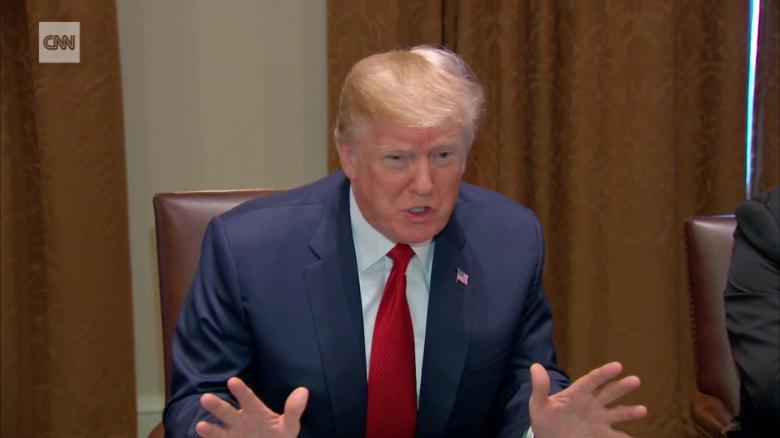Trump’s insult is fed by deep ignorance about Africa among Americans

President Trump’s insult is fed by deep ignorance about Africa among Americans. To most Americans, Africa is as an exotic place where animals roam around freely. There is really need to educate them.
Americans woke up during the second week of 2018 to another of United States President Donald Trump’s tirades. He dismissed Africa and its people as those living in “shithole” countries. He had singled out Haiti and Nigeria a few weeks earlier.
There was an immediate global uproar. How dare you, people asked? The African Union, for the first time ever, publicly rebuked the American president. US ambassadors in African countries rushed to find ways to minimise the impact of Trump’s comments. And people in African nations went online telling Trump where exactly to get off.
But Trump’s supporters stood firm arguing that African immigrants and others were the source of America’s economic and social ills.
Trump’s outburst was part of a pattern. During its first year in office, the Trump administration has failed to come up with a serious African policy, providing only makeshift responses to events on the continent. Trump’s knowledge of the continent seemed to be obtained from lightweight movies such as “Tarzan” and “The Gods must be Crazy”, and books such as Henry Morton Stanley’s “Through the Dark Continent”. It was the type of parody used to justify continuous dehumanisation of the African people.
Yet Trump’s derogatory comments should be turned into teachable moment because the miseducation of Americans about Africa runs deep. America’s perception of Africa and its people as “other”, and “different” has been integral in shaping policy towards the continent. It is embedded in what Derick Bell referred to as the “permanence of racism” in American culture.
A history of offences
It was common practice for US policy makers to refer to Africans as “cannibal,” “irrational,” and “irresponsible,” and whose leaders were “psychotic adventurers” and “small-time megalomaniac”.
Former disgraced presdient Richard Nixon considered blacks as “less intelligent”. Ronald Reagan held similar views.
This racism has extended to African Americans too. During Barack Obama’s campaign and eight years tenure as president, many of his critics dismissed him as inferior. The Tea Party movement was formed to go after anything Obama initiated, and as president, Trump’s mission seems to be to anull policies with Obama’s name on them.
Indeed, Trump rose to political prominence promoting falsehoods that Obama was not born in America. During Trump’s first State of the Union address, he didn’t once mention Africa. This is despite the fact that observers have continued to point to the importance of Africa in the defence of American security.
Whispers in the dark about Africa
Trump’s latest outburst brought to the forefront whispers in the dark about Africa. Over the years perception about Africa and its people haven’t changed much in the US. When historian Curtis Keim told his students to write what came to mind when they thought of Africa, they quickly came up with: native, hut, warrior, shield, tribe, savage, cannibals, jungle, pygmy, voodoo, and witch doctor.
Indeed, even very educated people in American society often referenced Africa as a place which, had fallen behind the march of progress, with ways of life representing in the early stages in the evolution of human civilisations. Others saw Africans as “seemingly, lazy people”.
To Americans, Africa is as an exotic place where animals roam around freely. A student who signed up to go on a school programme stated that her family and friends warned that by going to Africa she would lose 20 pounds and come back with some type of a disease. For generations of Americans, Africa has been the sourcesof jokes in America. It becomes much more serious when powerful men create policies based on obsolete notions.
Only time will tell whether the reeducation which followed Trump’s comments was successful but even for a brief period it provided a much needed moment to reeducate Americans about Africa.
Educating the public
African countries have their problems but there are immense possibilities in the continent. As novelist Chimamanda Ngozi Adichie correctly reminds us we must be attentive to the “danger of a single story”.
The time to tell Africa’s other story is overdue, and Trump’s “shithole” comment may have accelerated that process.
There are signs of light though. Following Trump’s comment, the American media and pre-college institutions provided more information on Africa. Basic facts became common knowledge. Repeatedly, audiences were informed that Africa is a continent with 54 nations. Its nearly a billion people speak different languages, and practice different religions.
Resources from Africa such as coltan are vital to the global software industry. African immigrants ridiculed the “shithole” notion in hashtags. One wrote:
I am from a shithole country, I am an engineer, have a Masters in Computer Science, published author – analytics, and hold a patent analysing cancer data. I am a proud civil servant overseeing large projects. I speak five languages, self-published three books of poetry – I am from a #ShitHole country.
Don Lemon and Anderson Cooper, both of CNN, labelled Trump a “racist” and misguided. African immigrants are the most educated in the US. They are in different professions including medicine, nursing, law, banking, and engineering. Of the 1.4 million immigrants from sub-Saharan Africa, 41 percent have a college degree and 16 percent have post-graduate degrees.
Finally, African immigrants have continued to make contributions to America’s well-being.
* Julius A. Amin is Professor and Alumni Chair in Humanities, Department of History, The University of Dayton, Dayton, Ohio, USA.
